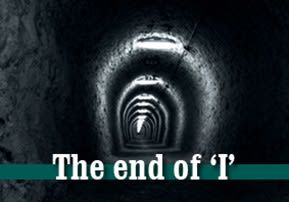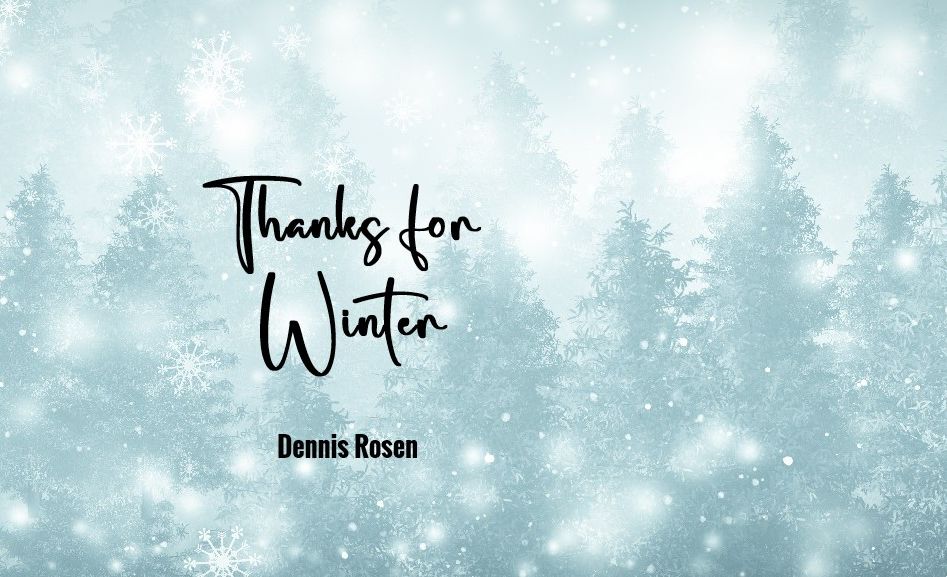
The end of ‘I’
Being far away from Hashem is terrible for a person’s soul, but it creates a false sense of security that if you do ‘x’, you’ll eventually get to ‘y’...

Of all the patriachs, the one I most identify with is Avraham. Every time, when I read of how Hashem tells him to ‘lech lecha’ – ‘go to yourself’, I have a pang of recognition.
Before we made aliya, I listened to a shiur by Rabbi Akiva Tatz, where he spoke of how Hashem couldn’t tell Avraham where he was ultimately going to, because the Avraham that he was at that point, in Haran, simply wouldn’t be able to fathom it.
He wouldn’t be able to understand the tests he would be asked to withstand – and which he would pass – and the unfathomable spiritual heights and closeness to Hashem he would attain, culminating with the sacrifice of Yitzhak, at the Akeida.
I loved that shiur when I heard it. But it was only after we’d made aliya ourselves that I actually started to really understand it, in any meaningful way.
When Avraham is presuming to argue with Hashem about the fate of Sodom and Amorah, he states ‘dust and ashes am I’. In his shiur, Rabbi Tatz explains that at that point in Avraham’s life – even before the birth of Yitzhak – the many tests that Avraham had undergone and passed had already given him a unique insight into the fact that there was nothing to him, beyond Hashem’s will. He’d already given everything else of himself away.
When I heard this in London, I kind of half understood it. Ok, Avraham was humble; he did whatever Hashem asked of him.
Since I’ve lived here myself – and had my own small taste of ‘lech lecha’ – I’ve come to understand it very differently. This understanding didn’t come at all easily to me; it came as the result of a very difficult period of time when literally everything I tried to do failed or never worked in the first place.
I was so arrogant and head-strong when I made aliya. I thought everything in life could be accomplished by my will alone, and my effort. I learnt the hard way just how wrong I was.
In chutz l’aretz, there is a ‘distance’ from Hashem, that on the one hand is utterly detrimental to a person’s soul and inner peace, but on the other hand, gives them a false sense of security that if they do ‘x’, they will eventually get to ‘y’.
It goes like this: If you invest a lot of time and money in a university education (‘x’), you will eventually get a good, well-paying job (‘y’). Or: If you need planning permission from the local council and you speak to the right people and get the right architect (‘x’), you will get your plans approved (‘y’). Or: If you put a lot of effort in, whether it’s cooking a meal, growing your family, or building a business (‘x’), whatever it is you are trying to do will, sooner or later, be a success (‘y’)
There’s a ‘natural order’ of things in chutz l’aretz, a set of operating principles, that can make it appear that your destiny really is in your own hands.
In Israel, there isn’t.
When we first made aliya, as a ‘returning citizen’ (my dad is Israeli) I had all kinds of trouble trying to get into the health care system. I spent 11 months pinging between the post office, misrad haklita, and Maccabi healthcare. Each one told me that there was a problem somewhere else in the system, and that I would have to resubmit my paperwork somewhere else.
I went round in a circle, submitting and resubmitting my paperwork every couple of weeks, for 11 months. Finally, I sat in front of the clerk at the Maccabi clinic and got told that ‘there was still a problem’ and that I still couldn’t get into the system. After 11 months and a ton of effort (‘x’), the ‘y’ was still no-where in sight. For the first time ever, I said a small prayer to Hashem to resolve the situation for me.
The clerk said nothing, typed for five minutes, and handed me my membership card. Problem resolved. How? Who knows. But it was the beginning of my dawning realisation that the only ‘x’ that really works in Israel is prayer.
Since then, I’ve had ample other examples. When you car breaks down and refuses to work; 3 out of 4 rings on your brand new stove top don’t work; your brand new expensive fridge breaks, for good, just after the guarantee expires; your internet packs in for weeks at a time (although all the neighbours’ connections are fine…); your phone breaks down every few days; you get traffic tickets from places you didn’t even know you’d gone to; your pricey new garden dies; your husband’s best client goes bust owing him thousands of pounds; your business – that you killed yourself to build up – fails overnight; your kids are miserable; your shalom bayit is in the toilet and EVERYTHING YOU DO GOES WRONG, even the most stubborn, arrogant, ‘can-do’ person has to stop and think.
And the thought that comes is at first, terribly uncomfortable and distressing: I can’t do anything without Hashem’s say so. I can’t make supper; I can’t catch a bus; I can’t make ends meet – I can’t do anything without Hashem’s say so.
Hashem has been very good to me. Every time I have even the slightest whiff of thinking that I can decide my own destiny – such as signing up for an art class this summer, which I had to cancel because our ‘minus’ suddenly went through the roof – Hashem clarifies Who is really in charge.
Sometimes, I feel frustrated. Sometimes, I kind of wish that I had more of that ‘comfortable lie’ in my life, that made it seem that I could chart my own course (even though that course nearly always ended up in pure misery and strife).
 But increasingly, I recognise that the end of ‘I’ is a good thing. The more I’m getting emptied out of ‘I’, the more space there is for Hashem – and the more opportunities there are for Hashem to relate to me and my family in truly miraculous ways.
But increasingly, I recognise that the end of ‘I’ is a good thing. The more I’m getting emptied out of ‘I’, the more space there is for Hashem – and the more opportunities there are for Hashem to relate to me and my family in truly miraculous ways.When I read ‘Lech Lecha’ again a couple of weeks’ ago, I realised just how far I’ve come. If G-d would have shown me just how challenging the last few years would have been from the outset, the old London me would never have set out on the journey.
Who wants to be dust and ashes?!?!
But today, when I hear people talking so stridently about ‘I’, and so confidently plotting their course in life, I inwardly wince. G-d is so very good to so many people, and they think it’s all their own doing. They never say thank you. They never stop to think about what they could do in return, for G-d. Their ingratitude is overwhelming.
When I’m around people like this, I’m left with one all-encompassing thought: Thank G-d I’m not them.
Today, given a choice between being dust and ashes, or being full of emptiness, arrogance and ego, I don’t hesitate to pick the former. Because dust and ashes – together with Hashem – is ‘reality’ and really all there is. But ‘I’ without Hashem, even if it’s terribly rich and successful, is ultimately a lie. And lies and the World of Truth simply can’t co-exist.









12/28/2009
thanks Thanks for your article. I live in Chutz Laaretz still but this is so true for me too. I heard ASAP stands for Always Say A Prayer! Praying for things works and also builds your bonds to Hashem so you feel really looked after. THank you Rabbi Nachman for teaching me that and I feel sorry for my friends who try so hard but haven’t yet found this way of letting Hashem run the show.
12/28/2009
Thanks for your article. I live in Chutz Laaretz still but this is so true for me too. I heard ASAP stands for Always Say A Prayer! Praying for things works and also builds your bonds to Hashem so you feel really looked after. THank you Rabbi Nachman for teaching me that and I feel sorry for my friends who try so hard but haven’t yet found this way of letting Hashem run the show.